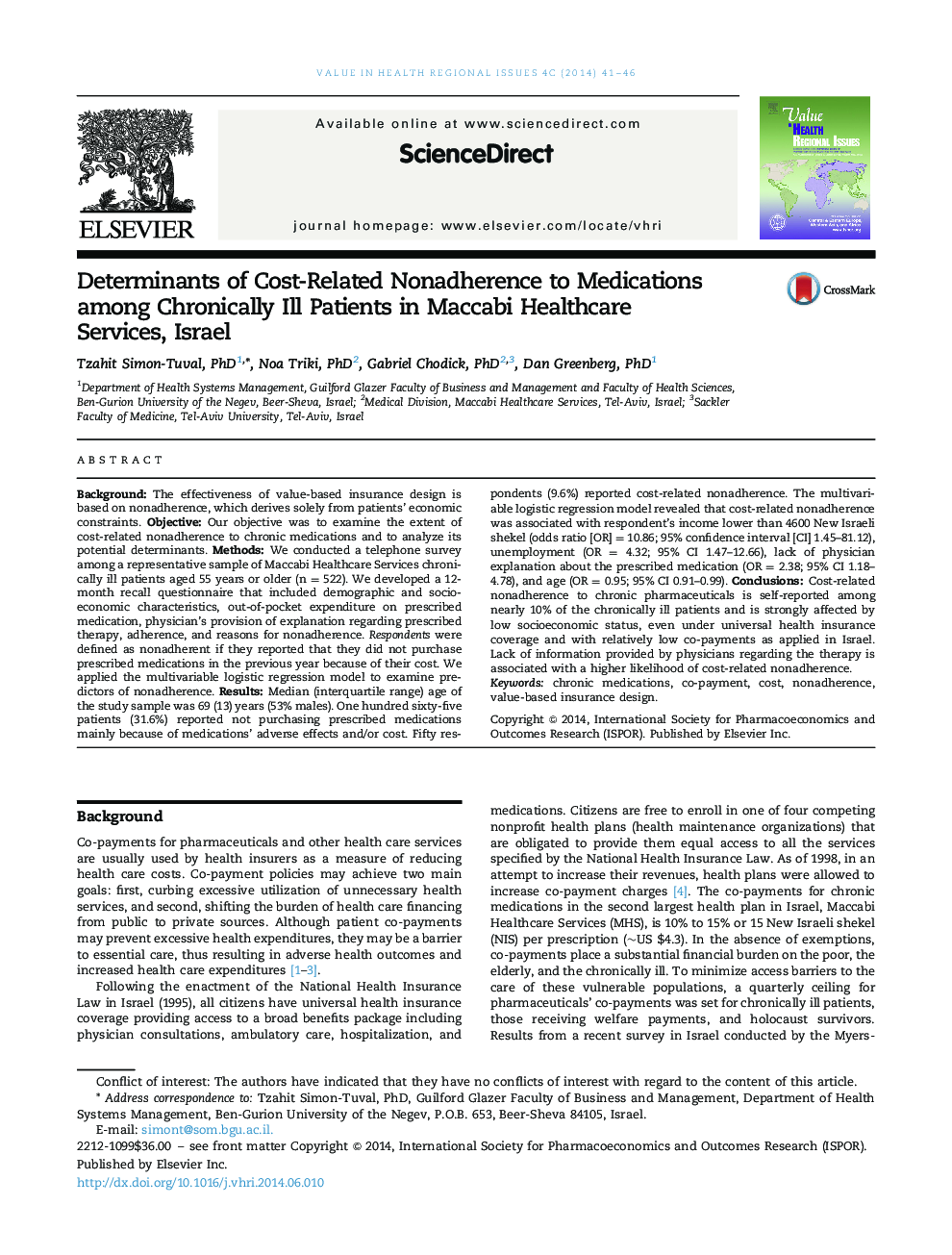| Article ID | Journal | Published Year | Pages | File Type |
|---|---|---|---|---|
| 990878 | Value in Health Regional Issues | 2014 | 6 Pages |
BackgroundThe effectiveness of value-based insurance design is based on nonadherence, which derives solely from patients’ economic constraints.ObjectiveOur objective was to examine the extent of cost-related nonadherence to chronic medications and to analyze its potential determinants.MethodsWe conducted a telephone survey among a representative sample of Maccabi Healthcare Services chronically ill patients aged 55 years or older (n = 522). We developed a 12-month recall questionnaire that included demographic and socioeconomic characteristics, out-of-pocket expenditure on prescribed medication, physician’s provision of explanation regarding prescribed therapy, adherence, and reasons for nonadherence. Respondents were defined as nonadherent if they reported that they did not purchase prescribed medications in the previous year because of their cost. We applied the multivariable logistic regression model to examine predictors of nonadherence.ResultsMedian (interquartile range) age of the study sample was 69 (13) years (53% males). One hundred sixty-five patients (31.6%) reported not purchasing prescribed medications mainly because of medications’ adverse effects and/or cost. Fifty respondents (9.6%) reported cost-related nonadherence. The multivariable logistic regression model revealed that cost-related nonadherence was associated with respondent’s income lower than 4600 New Israeli shekel (odds ratio [OR] = 10.86; 95% confidence interval [CI] 1.45–81.12), unemployment (OR = 4.32; 95% CI 1.47–12.66), lack of physician explanation about the prescribed medication (OR = 2.38; 95% CI 1.18–4.78), and age (OR = 0.95; 95% CI 0.91–0.99).ConclusionsCost-related nonadherence to chronic pharmaceuticals is self-reported among nearly 10% of the chronically ill patients and is strongly affected by low socioeconomic status, even under universal health insurance coverage and with relatively low co-payments as applied in Israel. Lack of information provided by physicians regarding the therapy is associated with a higher likelihood of cost-related nonadherence.
